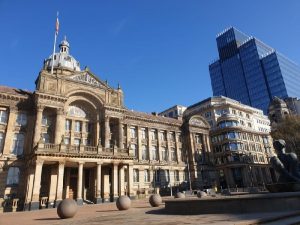Pioneering recycling project set to clean up in the West Midlands

Hundreds of millions of feminine hygiene products, nappies and incontinence pads disposed of in public and commercial bins are set to be recycled under a new initiative being developed in the Black Country.
Currently, the used products end up in landfill or are incinerated but with the launch of a new recycling plant especially for hygiene waste, these products can now be used to produce to produce clean energy.
The new plant opened in West Bromwich is a UK first.
The patented process behind the scheme is the brainchild of hygiene services and waste management company, PHS Group.
It said hygiene product waste takes up to 500 years to decompose and is one of the largest contributors to UK landfill. The average woman buys more than 11,000 tampons in her lifetime and around three billion disposable nappies are sent to landfill each year.
Called LifeCycle, the multi-million pound investment is claimed to be the first process of its kind that can operate cost-effectively and on an industrial scale.
LifeCycle combines mechanical separation with chemical treatment and converts highly absorbent hygiene products into Refused Derived Fuel (RDF), which is then supplied to the alternative energy market both in the UK and in Europe. RDF is typically burned in biomass plants to produce electricity and hot water either for municipal power systems, the National Grid or individual companies.
PHS chose West Bromwich as the base for the processing facility because of its strategic location at the heart of the UK’s transport network.
Justin Tydeman, chief executive of PHS Group, said: “Hygiene products are an essential part of many of our everyday lives but disposing of them has always been an issue.
“We have spent almost a decade refining the LifeCycle process and we now have a viable option for diverting hygiene waste products away from landfill.
“For the first time, we can all enjoy the benefits that the products bring and know that they are disposed of in an environmentally responsible way.”
Mr Tydeman said the new process was a direct response to the concerns of hygiene waste customers who wanted to minimise their impact on the environment.
“By converting hygiene waste products into RDF instead of sending them to landfill, we can help them to achieve their environmental targets. Our goal is zero to landfill for our customers’ hygiene waste products by the end of 2017,” he added.









